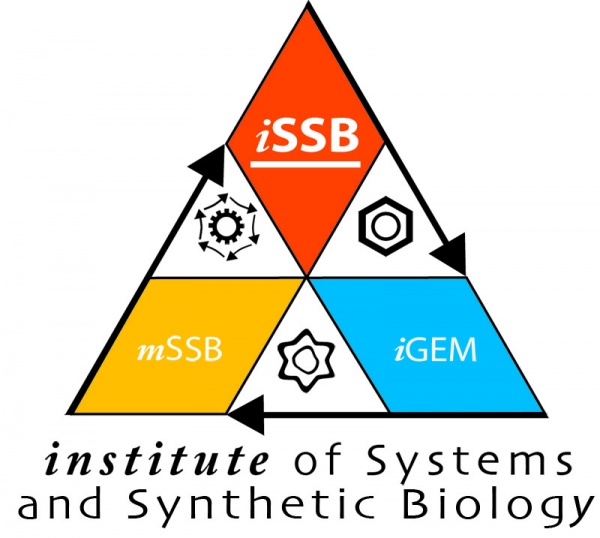Team:Evry/Modelmeta1
From 2013.igem.org
(Difference between revisions)
| Line 16: | Line 16: | ||
As shown on the <b>Figure 1</b>, our sensing system relies on a FUR Binding Site (FBS). In order to easily model the sensing delay and analyse its results, the first construction is composed of a GFP placed right after the FBS. | As shown on the <b>Figure 1</b>, our sensing system relies on a FUR Binding Site (FBS). In order to easily model the sensing delay and analyse its results, the first construction is composed of a GFP placed right after the FBS. | ||
</p> | </p> | ||
| - | + | ||
| + | <div class="captionedPicture" style="float:left;"> | ||
| + | <a title="Nom Lien" href="https://static.igem.org/mediawiki/2013/3/3b/EntBS.png"> | ||
| + | <img alt="Nom Lien" src="https://static.igem.org/mediawiki/2013/3/3b/EntBS.png" width="750px" height="381px" alt="First construction" class="Picture"/> | ||
| + | </a> | ||
| + | <div class="caption"> | ||
<h2>Goals</h2> | <h2>Goals</h2> | ||
Revision as of 15:25, 22 October 2013
Sensor Model
Introduction
In order to determine our iron-coli's enterobactin production rate, we first have to know how much time our bacteria will take to sense the ambient iron. So, this first part of the Enterobactin production model focuses on the synthetic sensing system our team implemented in the bacteria.
Observations
As shown on the Figure 1, our sensing system relies on a FUR Binding Site (FBS). In order to easily model the sensing delay and analyse its results, the first construction is composed of a GFP placed right after the FBS.
 "
"














